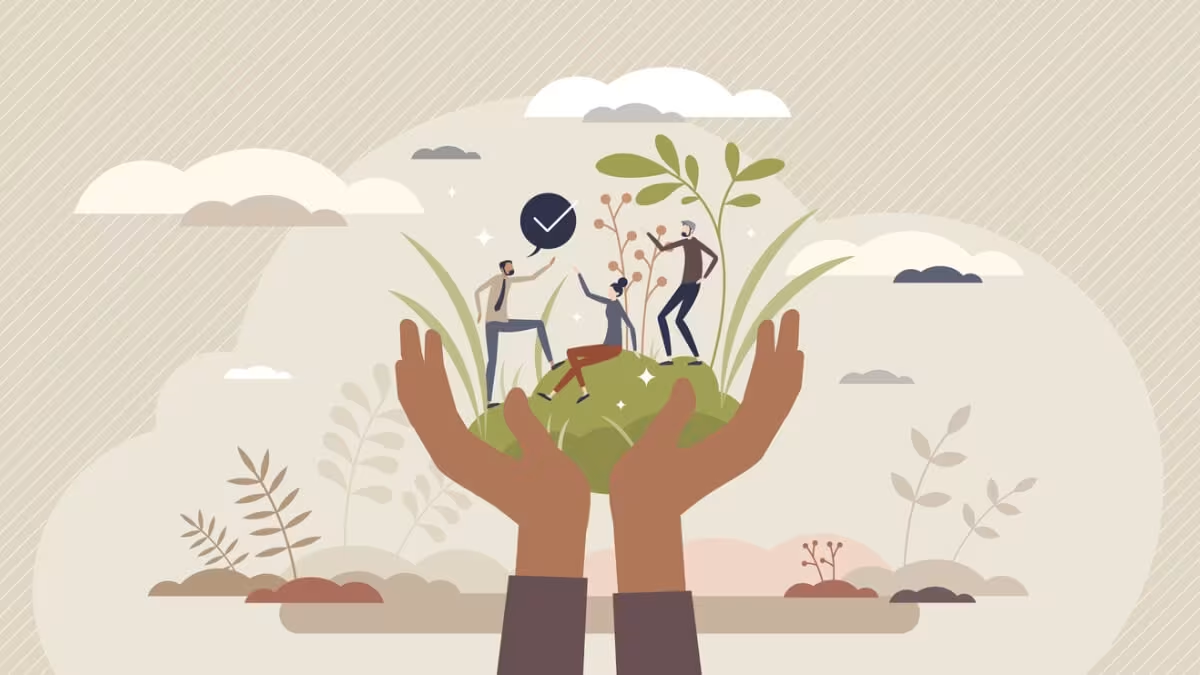In the digital age, data is more than just numbers—it’s a powerful tool for creating meaningful impact. Big Data for Social Good is an emerging field that leverages large-scale data and advanced analytics to address pressing global challenges such as poverty, climate change, healthcare inequities, and disaster response. Governments, NGOs, researchers, and even private organizations are now turning to data science to design smarter policies and improve lives.

But what does “Big Data for Social Good” really mean, and how can individuals or organizations participate in this movement? Let’s explore.
What Is Big Data for Social Good?
Big Data for Social Good (BD4SG) refers to the use of data science, machine learning, and data analytics to solve problems in areas like public health, humanitarian aid, social justice, environmental sustainability, and more. It focuses on applying data-driven insights for societal impact rather than profit.
This practice draws from vast datasets—like mobile usage patterns, satellite imagery, public records, and sensor networks—to uncover trends, optimize resources, and deliver actionable insights to communities in need.
Why Big Data Matters in Social Good?
Traditionally, social impact efforts have relied on surveys, limited reports, and anecdotal evidence. But big data introduces:
- Real-time insights: Understand what’s happening as it unfolds—crucial for disaster response and disease outbreaks.
- Scale: Analyze millions of data points from diverse sources to identify patterns across regions or populations.
- Prediction: Machine learning models can anticipate outcomes, allowing early interventions (e.g., predicting famine or disease spread).
- Efficiency: Optimize resource allocation by targeting the right regions or demographics more effectively.
Key Applications of Big Data for Social Good.
Here are several high-impact areas where big data is making a difference:
1. Public Health.
- Tracking disease outbreaks through social media and search trends.
- Identifying underserved areas lacking healthcare access.
- Optimizing vaccine distribution using population movement data.
2. Poverty and Inequality.
- Using satellite images and mobile data to map poverty zones.
- Evaluating the success of welfare programs.
- Monitoring economic indicators in real time to detect crises early.
3. Disaster Relief.
- Predicting floods, earthquakes, or fires using weather and geological data.
- Coordinating rescue operations via real-time communication analysis.
- Using drones and AI to assess damage and plan recovery.
4. Education.
- Analyzing student data to improve learning outcomes.
- Identifying gaps in digital access for marginalized communities.
- Supporting personalized learning through adaptive platforms.
5. Climate Change.
- Modeling environmental changes and their impact on communities.
- Monitoring deforestation and carbon emissions.
- Driving policy decisions with climate forecasts and historical data.
Real-World Case Studies.
- UN Global Pulse: Uses mobile data to detect economic stress in low-income countries.
- DataKind: Pairs data scientists with nonprofits to tackle social challenges like homelessness and education gaps.
- Facebook Disaster Maps: Analyzes user location data to help humanitarian organizations plan relief during crises.
Learning Big Data for Social Good.
The Big Data for Social Good is designed to teach learners how to:
- Evaluate data sources, ethics, and limitations.
- Analyze case studies in public health, economics, and humanitarian work.
- Understand how data science, statistics, and policy intersect.
- Use big data tools to build social impact strategies.
Course Features:
- Self-paced online format.
- Designed by Harvard faculty in collaboration with the Harvard Kennedy School.
- Includes hands-on projects and real-world datasets.
- Ideal for policymakers, nonprofit leaders, data analysts, and students interested in social impact.
Our Take: How You Can Get Involved.
You don’t need to be a data scientist to contribute to this field. Here’s how you can get started:
For Professionals:
- Upskill with courses like Harvard’s or DataCamp’s social impact tracks.
- Volunteer with platforms like DataKind or Crisis Text Line.
- Join open data projects or hackathons that focus on humanitarian goals.
For Students:
- Participate in university research on public policy, climate, or healthcare using data analytics.
- Take interdisciplinary coursework combining data science with sociology, economics, or global studies.
For Organizations:
- Invest in data infrastructure to collect, clean, and manage actionable information.
- Collaborate with academic institutions or nonprofits for shared insights.
- Prioritize transparency and ethical data use.
Ethics and Responsibility in Big Data
While the potential is vast, ethical considerations are crucial. Big data must be used responsibly:
- Privacy: Protect individual identities when handling personal data.
- Bias: Avoid algorithmic discrimination by ensuring datasets are diverse and representative.
- Transparency: Be open about data sources, methods, and intended use.
A socially driven data practice must always prioritize consent, fairness, and accountability.
Final Thoughts.
Big Data for Social Good is not just a trend—it’s a revolution. From combating disease to addressing inequality, data has the power to amplify social impact when used thoughtfully and ethically.
Whether you’re a student, a professional, or a policymaker, now is the time to explore how data can be used not just to inform, but to transform. Learning platforms like Harvard Online offer a strong foundation, but your own curiosity and commitment to change are the most important tools you can bring.
Summary.
| Key Point | Takeaway |
|---|---|
| Definition | Using big data to solve societal challenges. |
| Impact Areas | Health, education, environment, disaster relief, poverty. |
| Tools | Machine learning, satellite data, mobile patterns, open datasets. |
| Learning Resources | Harvard’s course, DataKind, open-source platforms. |
| Ethical Considerations | Privacy, bias, accountability. |
Ready to be a changemaker with data?
Explore, learn, and contribute—because the future of social good is data-driven.
Leave a Reply